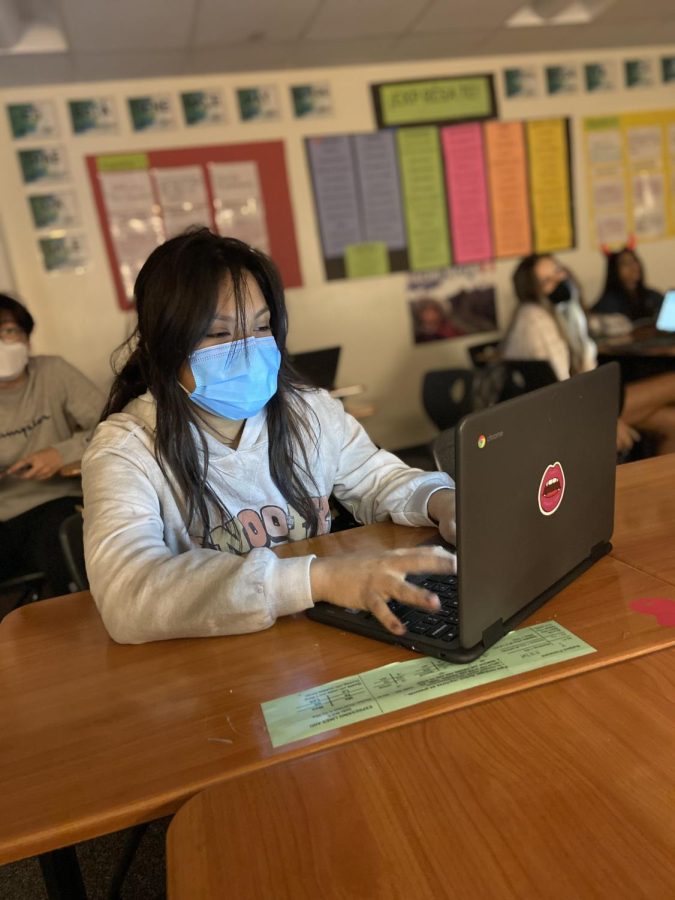Cybersecurity Awareness Month Stresses The Importance of Online Safety
Mei Chiu ’24 uses her chromebook for schoolwork. The purpose of Cybersecurity Awareness Month is to teach students how to stay safe while on the internet.
October 31, 2021
The month of October is Cybersecurity Awareness Month, a month meant to stress the importance of security in an online environment. The goal of this month is to teach people the steps they can take to ensure the utmost security on the internet.
“[Cybersecurity Month] is beneficial because it’s basically a month to get people more aware about how cybersecurity works and what measures to take to keep their data private and protected,” Pranavi Veluguleti ‘24 said.
Cybersecurity takes precautions against attackers breaching information and other online criminal activity through steps such as confidentiality and integrity. In an age where social media and video games are important to teenagers and computers are often used in schools, it’s not just adults targeted in cybersecurity threats.
“I want privacy, but there’s a lot of information that gets leaked and it’s just that all my information is out on the internet,” Mirunalini Shanmugavelu ‘24 said.
This year, the main theme for Cybersecurity Awareness Month is Do Your Part. #BeCyberSmart, but each week of October also has a different theme related to cybersecurity. Previous themes included Be Cyber Smart, Phight the Phish, Explore. Experience. Share. and Cybersecurity First.
“It’s beneficial to give awareness to people that aren’t really open to the fact that people can still hack you online, people are very sensitive online, and you can be hurt online,” KC Pooler ‘25 said.
Americans lost $29.8 billion dollars to phone scams in the last year. Cybersecurity Awareness Month raises awareness for scams such as those including phishing scams, hacking, and malware among other dangers of the internet. Children and teens are often also targeted by hackers due to their vulnerability that allows hackers to then steal parent information.
“On the internet, anything could happen,” Sritanvee Alluri ‘24 said. “Cybersecurity is beneficial by basically helping common people protect themselves in any way.”
Ways to avoid these scams include monitoring accounts for suspicious activity, using two-factor authentication which uses two different forms of identifications on devices and sites, signing up for alerts when any data or accounts are threatened, creating strong passwords, using antivirus software, and avoiding calls and messages from unknown callers.
“I think identifying what’s not a phishing scam and what is a phishing scam is really important,” Renitha Ramesh ‘24 said. “[It could be a phishing scam] if there’s a bunch of spelling errors in the email or if it’s not from a verified user.”
Personal information such as credit card information and medical records can be kept on the internet. 47% of American adults have had personal information stolen through cybercriminal activity, but the risk even reaches schools, with cybercriminals publishing information from 1,200 American schools in the past year.
“We need to make sure that we’re protected so people don’t steal things like our bank accounts,” Tulsi Joglekar ‘24 said. “In order to live a healthy and balanced life not just in the normal world but online, we need to have cybersecurity.”



